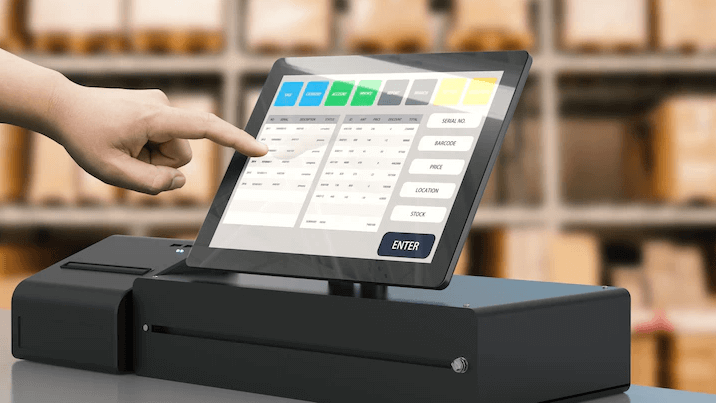5 Things To Consider When Choosing A POS System
A Point of Sale, or POS (as it is commonly known), is defined as the place where sales occur. If you look at it on a macro level, the POS can be a mall, department store, city, or marketplace where large sales orders are made every day.
On the other hand, if we look at it on a micro-level, POS is where a buyer makes a money transaction in return for his/her purchase, such as at a grocery shop.
The checkout counter that you see in any retail store is a perfect example of point of sale used by businesses.
However, deciding on an effective POS solution is a tricky task that every growing business has to perform at one point in time. POS is vital for businesses as it records all transactions that have taken place or will take place in the business
Without the support of an efficient POS management system, your business cash flow management can be messy. Businesses will find it impossible to keep bookkeeping records.
But sometimes — especially when you are opening your first small business or if you are new to the point of sale systems — you might find it hard to decide what exactly you should be looking for in a POS system that will best fit your business module and goals.
This is where TrueBays comes in. Here we will talk about the things you should consider before buying a POS system.
1. Pricing
If you are unaware of POS software, then the good news is that you have started searching for the right solution at the right time. A few years ago, it was not possible for small businesses to install a POS system due to high price points. However, because of the software as a service (SaaS) model, businesses can leverage these technologies easily.
Well, this is the good part.
There’s not such a good side to it either.
Though there are many POS systems available in the market, not everyone is right for you.
One of the factors you will have to consider while choosing the best POS for your business is the price of the solution and whether it matches your budget.
Though pricing may vary from system to system, transparency should always exist.
The right POS solution provider will offer competitive and easy-to-use POS at affordable and transparent pricing.
2. Reporting
Now let us consider the factor which many smart companies consider on priority these days. Data.
Many businesses are investing in POS systems probably because they know that along with helping you in making transactions, and POS works wonders for employees by helping them in inventory management and allowing them to access data that can upgrade their business and boost sales.
However, you, as a business, will need reports on things that are beyond data type and amount, such as top-selling items, inventory reorder, sales and inventory by date range, customer activity, and more.
Using reporting feature, you can check that is your sales figures across all the stores from anywhere at any time. This also means you would be able to check your sales activities transactions, sales value, customer footfall, and more even if you are away from your store.
You can do it in real-time using your phone or tablet.
Check POS Reports Guide For Small Businesses
3. Integration
POS integration enables business owners to leverage different business tools simultaneously by allowing the apps to interact directly with one another.
In simple words, it means that rather than having to divide your time into a variety of tasks, apps nowadays are capable of syncing up with each other and performing respective tasks simultaneously.
4. Support
We all plan to buy systems and solutions where we will never have to opt for customer support ever. We want our product to run smoothly. However, in the lifespan of your POS system, you might need help here and there.
Hence, it is important that you go for a POS solution provider who comes with 24/7 customer support, be it via email, chat, or phone call. If you do not offer credible customer services, it might lead to an inability to accept transactions and a loss of sales.
5. Usability
While finalizing a POS system, make sure it is easy to install and simple to use. You should manage the installation process yourself and be able to train employees without much ado.
The correct POS system can be understood in a few minutes.
A POS should offer you an intuitive user interface that is easy to learn and use.
Conclusion:
While investigating the utility and value of any POS system, make sure you know what you are looking for in your POS system and why do you want to install it.
Once what and why is confirmed, you can shortlist the solutions and providers for your business after referring to the above-mentioned factors.


